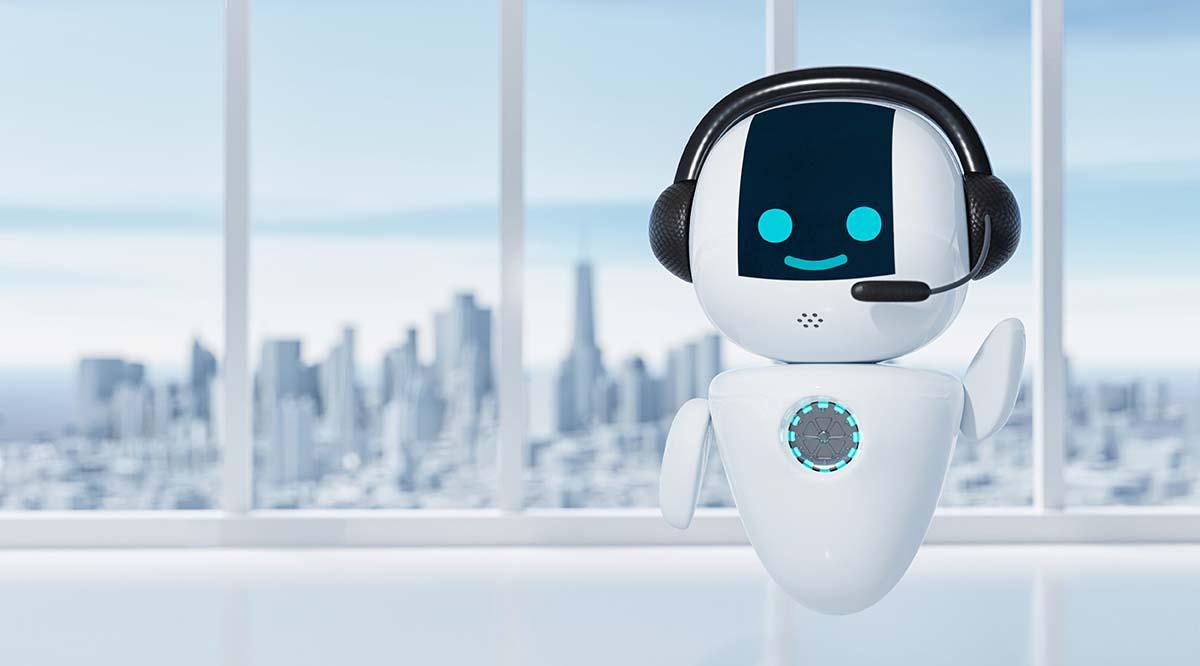The interview began well. The medical school applicant delivered informed answers about the role of artificial intelligence in medicine, giving a patient bad news (step five: “offer support and resources”), and applying ethical reasoning to determine which of two patients gets a donated liver. But when Sahil Mehta, MD, sought personal reflections — about college experiences, personal ambitions, and motivation to practice medicine — the responses got strange:
“I do not attend college.”
“I do not have personal preferences or desires.”
“My knowledge of medicine is based on information that was available to me at the time of my training, which ended in 2021.”
Mehta, an attending physician in radiology at Beth Israel Deaconess Medical Center in Boston, was conversing with ChatGPT to see if the hottest tool in artificial intelligence (AI) could ace a medical school admission interview (by text). Mehta gave the language generator a “solid B,” writing that it instantly tapped into a repository of medical knowledge “far better than any premedical student could have,” but “fell apart … in its personal experiences, which is such an important part of the medical school interview.”
That exercise was one of many ways that leaders in medical education are exploring the potential impact of chatbots — specially trained AI systems that process and simulate human language. The newest versions of chatbots unveiled over the past several months — ChatGPT, Bard, and Bing Chat — understand queries so precisely, aggregate information from the Internet so quickly, and churn out such well-written responses that they are being tried on just about every written endeavor in medical education and research. That includes answering exam questions, writing school application essays, doing homework, and summarizing research for scientific journals.
“Any medical school that accepts it faster and teaches with it, rather than against it, is going to do better for the doctors it’s training,” says Mehta, also founder of an admissions consulting company (MedSchoolCoach). “In the future as a physician, you’re going to be using it” for diagnoses and treatment. “How do we figure out how to incorporate that into a curriculum?”
This month medical education leaders explored answers in a workshop on artificial intelligence in health professions education. “We need to look … at all the benefits and think of how we can influence its healthy transition into health care and health care education,” workshop chair Carole Tucker, PhD, PT, associate dean for research at the School of Health Professions, University of Texas Medical Branch, said in opening remarks.
Here are some of the ways that administrators, teachers, and students are thinking about that.
Will chatbots ace admissions essays?
Plug in some information about yourself and a medical school, and chatbots will produce crisp essays. When someone in the online Student Doctor Network (SDN) asked ChatGPT to answer a prompt from a University of Michigan Medical School application about “how you hope to impact medicine in the future,” the chatbot wrote:
“I hope to impact medicine by advancing knowledge and expertise in the field through research and innovation. One way I hope to do this is by contributing to Path of Excellence in Precision Health, [a university initiative] which focuses on developing personalized treatment plans for patients. By combining my passion for science and technology with my desire to improve patient care, I hope to help develop more effective and targeted therapies that improve health outcomes and reduce health care costs.”
Medical school administrators who have experimented with chatbots say the prose is clear, well-organized, and knowledgeable about their institutions. But the text tends to feel generic, lacking the self-revelation and reflection that admissions officers look for.
“Chatbot prose might make a student sound scripted,” warns J. Michael Bostwick, MD, senior associate dean of admissions at Mayo Clinic Alix School of Medicine in Rochester, Minnesota. “One of the things we’re looking for in our applicants is what makes them stand out, what showcases their authentic selves.”
Applicants could use chatbot compositions to generate ideas, then build on that foundation with their own experiences and thoughts, says Emil Chuck, PhD, a former medical and dental admissions administrator who is now director of advising services for the Health Professional Student Association, which runs the SDN. However, Chuck also notes that applicants can “keep prompting it [the program] to add some personality” and reflection.
A student on the SDN got a chatbot to contrive experiences as a hospital intern and free clinic volunteer, which, the chatbot wrote, “gave me a deep appreciation for the art and science of medicine” and “solidified my desire to pursue a career as a physician.”
How can admissions officers respond to chatbot compositions?
Admissions officers hope that interviews with applicants will reveal those who appear to have produced their essays largely through chatbots, much the way that interviews often indicate that an applicant’s work was written by someone else. The giveaway comes in how the applicant speaks, thinks out loud, and responds to unexpected questions.
“One of the things you’re trying to see is whether the person who presents themselves on paper appears consistent with the person who presents themselves” in person, says Lindia Willies-Jacobo, MD, FAAP, senior associate dean for admissions and equity, inclusion, and diversity at Kaiser Permanente Bernard J. Tyson School of Medicine in Pasadena, California.
As chatbots get better at customizing essays, Mehta says, “I think there’s going to be less of an emphasis on the written piece” for admissions and “more of an emphasis on the actual experiences that somebody has had.”
Chuck thinks that admissions officers will learn to recognize the common prose of chatbot essays. Some might use programs designed to detect such work. Ultimately, the essays are just part of a holistic review of applicants.
“You don’t get into medical school for having the best essay,” Chuck says.
How should students use chatbots for assignments and exams?
Is ChatGPT factually reliable? When asked, ChatGPT responded, “While I strive to be as accurate as possible, there may be occasions where my responses are incorrect or incomplete.”
Chatbots can produce summaries of just about anything studied in medical school, including biological functions, illnesses, and treatments. But the answers do not cite sources, leaving users responsible for verifying their accuracy or vulnerable to passing along errors.
In addition, Willies-Jacobo notes that a knowledge of medical facts just lays the foundation for what is required to excel in medical school and become a good doctor: analysis, critical thinking, and creativity. ChatGPT raised this issue when asked if medical students should use it for exams.
“Medical school exams require not only factual knowledge but also critical thinking, analysis, and synthesis of information,” it wrote. “I cannot guarantee that my responses will meet the standards required for medical school.”
Dumping chatbot answers into assignments or relying on them to study for exams can ultimately backfire on a student who fails to really learn the information, process it, and contemplate next steps. “If you’re using a chatbot to generate answers or write essays, you might not have thought the problem through,” Bostwick says. “You’re shooting yourself in the foot.”
ChatGPT issued a different warning: “I must emphasize that using AI or any other technology to cheat on exams or tests is not ethical.”
Can chatbots improve medical education?
Educators say chatbots can accelerate and deepen learning in several ways if students and teachers use them well.
Students can use chatbots as starting points for research, writing, and studying — essentially as sophisticated search engines to aggregate and summarize information (while making sure to verify it). That can let students devote more time to analysis and creative problem-solving.
“We’re trying to teach you how to think, not regurgitate,” Bostwick says.
The National Academy of Medicine, in a 2021 report about AI in health professions education, noted that “‘information overload’ continues to overwhelm the cognitive and mental capacity of students’ and educators’ minds.” It said various types of AI can help to “refocus learning on knowledge management” rather than “information acquisition.”
Emphasizing how to analyze and use information provided through AI “puts the burden on the teacher to come up with ways of teaching other than rote learning,” Bostwick says.
For example, he says teachers can divide a class into groups to research and brainstorm solutions to a medical problem, then present their findings to the class and respond to challenges from the teacher and other students.
Schools might also use chatbots to give students practice in conversing with simulated patients. Some teachers are experimenting with chatbots to create course plans, assignments, and exam questions more quickly than they have traditionally done on their own. “One educator thought it did a reasonably good job, although it needed some tweaking,” says Willies-Jacobo at Kaiser.
At the K-12 school level, a recent survey by the Walton Family Foundation found that teachers use ChatGPT for tasks such as lesson planning more than students use it for school work.
Can chatbots help medical school graduates pass their tests for physician licensing?
ChatGPT has made news by correctly answering enough sample questions from the United States Medical Licensing Exam (USMLE) to essentially pass the test. While studies involving that and other tests (such as bar exams) demonstrate the ability of chatbots to quickly find and produce facts, they don’t mean that someone can use those tools to take such standardized exams.
For one thing, the USMLE is given in-person without test-takers having access to web-based tools to find answers, notes Alex J. Mechaber, MD, vice president of the USMLE at the National Board of Medical Examiners. Mechaber also points out that the chatbots did not take the full exam, but answered certain types of sample questions from various sources.
Still, USMLE administrators are intrigued by the potential for chatbots to influence how people study for the exams and how the exam asks questions.
“We’re trying to assess what it [a chatbot] can and cannot do,” Mechaber says. “It got a lot of answers wrong, and we need to understand why. Does it do better with certain content? Does it become helpful as a study tool? Does it become helpful as a writing tool” to improve the questions?
The outlook that Mechaber expresses at the USMLE is similar to how educators and administrators throughout medical schools are looking at chatbots: “It’s very intriguing technology. Let’s see where it goes.”

